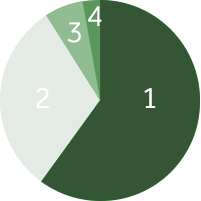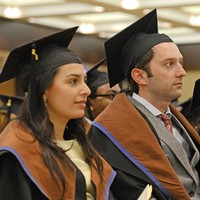Paul Polman
Chief Executive Officer, Unilever Graduation ceremony
Develop your skills and accelerate your career in International Management.
The Master of International Trade & Finance with specialization in International Law and Taxation is designed for students interested in pursuing careers in international trade, finance, and global regulatory environments. The degree is geared towards recent undergraduates or working professionals with less than two years of experience. The program provides a comprehensive introduction to international trade and finance: how do companies conduct and finance cross-border operations? What are the legal, tax, and regulatory challenges of international business today? What are the ethical and social responsibilities of companies operating in a globalized economy?
Ranking Eduniversal 2015-16: Master of International Business (Top 50)
Students have the opportunity to pursue a second degree at Boston University master’s degree program in an abbreviated time frame upon successful completion of the International Institute in Geneva (IIG)’s master’s degree. Students will complete no less than 8 required courses to fulfill the requirements of the Boston University master’s degree.
 PLAY
PLAY

Chief Executive Officer, Unilever Graduation ceremony

Former President of Ireland and United Nations High Commissioner for Human Rights
Graduation Ceremony


The faculty at IIG in Switzerland, is international in experience, practical in orientation and focused on their teaching. The faculty members are student-centered and committed to foster a stimulating learning environment.

Geneva belongs to a select group of truly “international” cities of the world, making it an ideal place to study international management.

The International Institute in Geneva has established a strong network, developing exchange programs with 23 universities worldwide.

MIB graduates have gone on to careers in multinationals, family businesses, international organizations and governments.

The International Institute in Geneva provides for counselling to assist students in their career decisions.
See the link : https://www.iig.ch/en-en/admissions/graduate